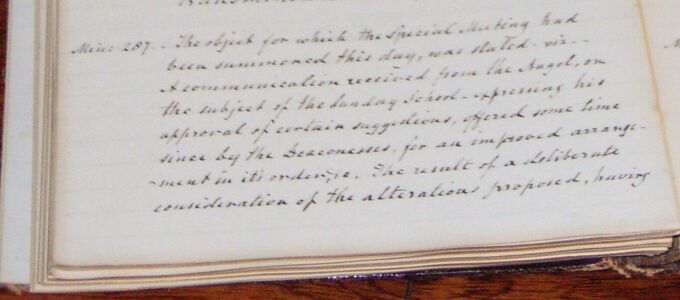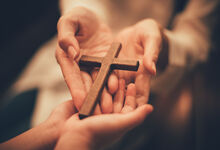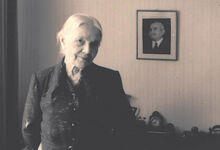Ministry (34): A brief history of Deaconesses
Were the Deaconesses in the New Apostolic Church ministers or not? To answer that we first have to look at how this function developed in the first place, historically that is. Join us on our search for historical evidence.

In the first eighty years of the New Apostolic tradition, Deaconesses were anything but rare. A case in point is the photo album that Chief Apostle Niehaus received as a birthday present in 1906 from Apostle Jakob Kofman and his fellow ministers: it contained a total of 150 portraits, 19 of which were of women.
The New Apostolic congregations had taken over the function of Deaconesses—and initially the entire organisational structure—from the Catholic Apostolic Church. Deaconesses were a topic of discussion from the start: as early as 1834, the then six remaining Apostles at the time debated about this. And only a few months after the separation of the twelve Apostles, the first Deaconesses were called in 1835.
The rediscovery of helping the poor
The Catholic Apostolic Church was following a contemporary development: the industrial revolution had led to increased poverty. This gave rise to the idea, among Protestants in Germany and Anglicans in Great Britain, of reviving the early Christian diaconate in the sense of supporting the poor. This led to female religious orders, including the Deaconess Houses or Homes.
Originally, this is what Henry Drummond, the co-founder of the Catholic Apostolic movement, also had in mind: an association, called the Sisters of Charity, was to care for the poor. The future Apostle’s idea was that a group of these Deaconesses would support each congregational Bishop with their local work. However, such an order never came into being.
Women at the service of women and girls
And yet Deaconesses came to be used for various causes. They supported the Deacons in caring for the poor and the Priests in pastoral care. The tasks they performed went beyond simply accompanying the male ministers of the church: in fact, it included providing independent care to women.
“Without Deaconesses and their care work in the Church, we cannot provide the necessary proper pastoral care for women,” the Catholic Apostolic theologian Ernst A. Rossteuscher wrote in his widely published work Belehrung über Frauendienst und das Diakonissen-Amt in der Kirche (Instruction on women’s service and the ministry of Deaconesses in the Church).
A large part of the Deaconesses’ work was also devoted to teaching. They not only taught Sunday School, but sometimes taught other subjects as well: for example, in the Central Church in London there was a school for girls for a time, which taught reading, writing, and arithmetic, as well as sewing, cooking, and housekeeping.
A non-ordained ministry
In order to be called as a Deaconess, women had to meet certain requirements. They had to be “of mature age and live in circumstances which allowed them to devote their services to the church without being hindered by family obligations”, the requirements stated.
Deaconesses were not installed by the Apostle, but by the congregational Bishop. With the laying on of hands by the Bishop, they received a blessing and “a true ministry of the Church” as Ernst Rossteuscher put it. Unlike Deacons, they were not subsequently ordained with the apostolic blessing. And unlike male clergy, they were not allowed to dress in liturgical vestments or to perform any functions during divine service..
When the New Apostolic congregations started to come into being from 1863 onwards, everything initially remained the same as far as Deaconesses were concerned. However, over the years, new tasks were assigned to women and the act of institution was also changed. This is what we will look at in the next part of this series.
This article is based on the current reference work “The Lord's Work: A History of the Catholic Apostolic Church” by Tim Grass as well as on mostly unpublished material by the New Apostolic historian Manfred Henke. Photo: Extract from the minute book of the deaconesses of the Catholic Apostolic congregation in Gordon Square, London
Article info
Author:
Date:
Keywords:
Andreas Rother
08.08.2023
ministry,
historic ministries,
Deaconess,
Denominations




















